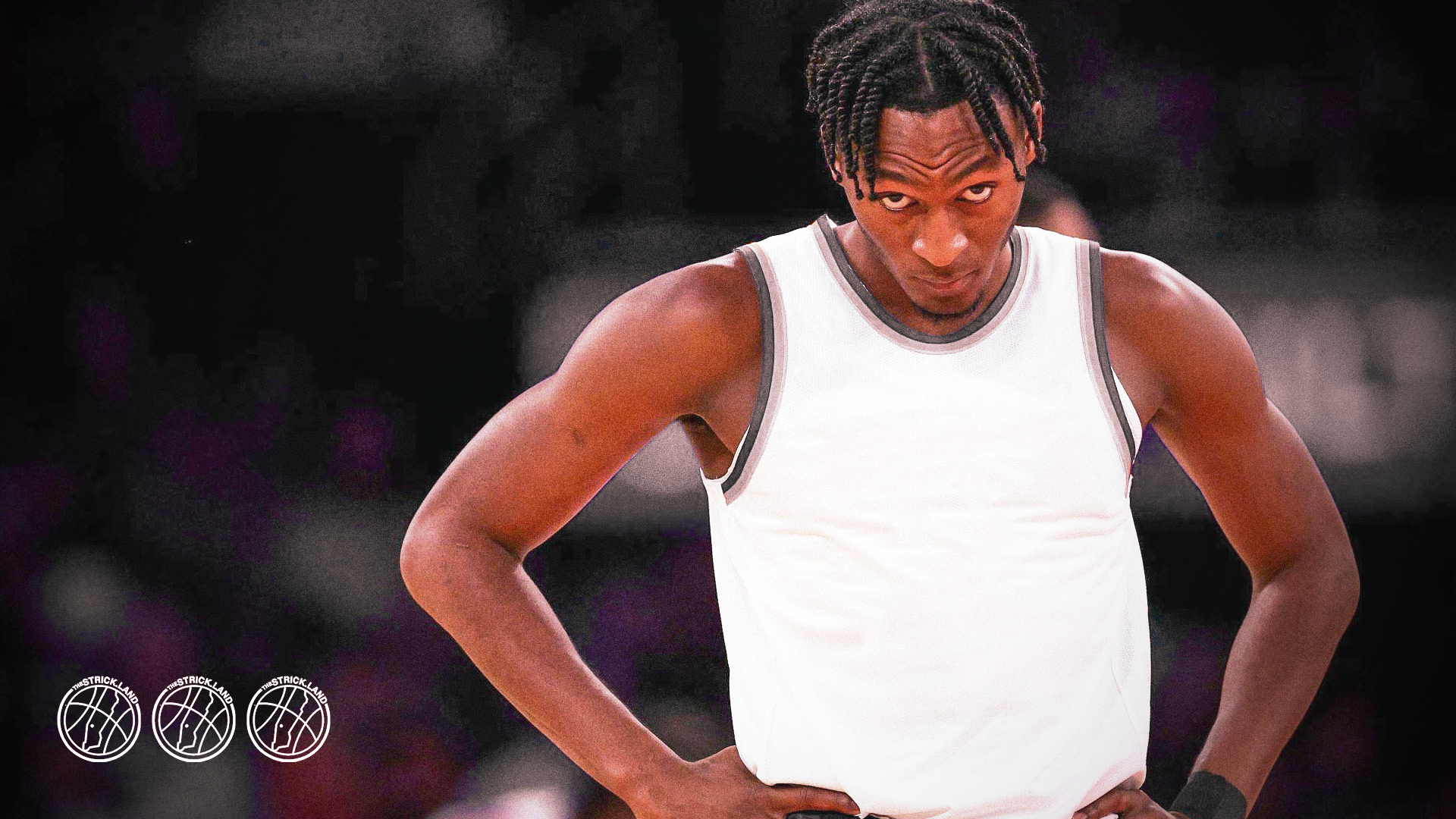There are a lot of reasons to trade Immanuel Quickley
…but if that’s the solution, the problem is bigger than we’ve been told.
Seventy percent of NBA teams have no inherent appeal to big-time free agents. Absolutely none. Obviously if the Portland Trail Blazers offer you millions of dollars to play basketball, you let them. But no player with another good option on the table has ever said, “All things considered, I’d rather be in Oregon.” Or Utah. Or Indiana. Everyone understands the truth: most of the league are places no player would ever sign with or ask to be traded to. Free will gunks up the wheels of capitalism, though, so every few years the league sacrifices its young virgins to appease the gods.
Every NBA collective bargaining agreement, by design, makes it harder for popular teams to capitalize on their popularity. The owners, so quick to cutthroat the players by trading them, or the fans by abandoning a city, suddenly shrink from the invisible hand. They cry for deliverance. Immunity, really; if the market really were free to be free, the Knicks, Nets, Lakers, Clippers, Suns and Heat could pay the best players the salaries they truly deserve.
You’d have powerhouses the likes of which we’ve never seen. Offseasons would be blockbusters to rival the MCU. Instead, Anthony Edwards is stuck in Minnesota so someone born into billions who now owns five super yachts can feel reassured they’re gonna keep making money even as the team sucks.
All of which means, the Knicks probably need to trade Immanuel Quickley. Sooner than later.
Such is the madness of our time: a team drafts a player late in the first round, sees him succeed, thus must be rid of him. Nobody likes it. Imagine a world where drafting someone who works out great means having to trade them. You don’t have to imagine. You already know. We don’t have to live a car ride away from everything that matters to us. Don’t have to see school kids ruptured and burst by military-grade weapons every day. Don’t have to pretend profit is real and climate change isn’t. Of course we don’t have to.
The Knicks don’t have to trade Quickley. They could sign him to an extension. Four years, $80 million? Isn’t that a win-win? An inexpensive one, by NBA standards? Depends.
At $20 million a year, Quickley would be the fourth-highest paid Knick, behind Jalen Brunson, Julius Randle and RJ Barrett. The Knicks may take on new forms as they try to build a title contender, which is fine. There are lots of different ways to build a contender, salary-wise. Look at this year’s four conference finalists looking forward.
Next season, the Lakers will owe Anthony Davis and LeBron James a combined $93 million. The only other guaranteed contract on their books is $1.7 million due to Max Christie. That’s it. Their formlessness is the price of doing business with late-stage LeBron; he prizes flexibility over all, so his teams must. Denver will owe Nikola Jokić $46 million while paying $33 million each to Jamal Murray and Michael Porter Jr.; Aaron Gordon is due $21 million. Miami is on the hook for $45 million to Jimmy Butler, $32 million to Bam Adebayo, $29 million to Kyle Lowry and $27 million to Tyler Herro. After $32 and $30 million for Jayson Tatum and Jaylen Brown, the Celtics are slated to pay three combo guards – Marcus Smart, Malcolm Brogdon and Derrick White – between $18-20 million in 2024.
Boston’s been one of the league’s best teams for a while. Must be onto something, for a team like that to invest so heavily in three players somewhat similar to Quickley. But an unknown number, one that doesn’t even exist yet, may put the kibosh on the C’s three wise men. After next year, Brown is eligible for a supermax that will pay him nearly double his current take-home. The Celtics will have to re-shuffle the roster. They may have to move on from one of Smart, Brogdon and White. Maybe two.
The Knicks, still building toward being a contender, don’t face the same pressure those teams did, each having entered the season looking to win the title. The Knicks don’t have anybody due to make nearly $60 million anytime soon; they don’t have anyone making more than $26 million next year. Why not just extend Quickley, extend Josh Hart and run it back with the group that so pleasantly surprised this season? Continuity is a force multiplier; who knows what this team learned about itself after 82 games and two playoff rounds. They’re young, with no rotation player older than 28; they’re wisened, not wizened. Pay for quality players you’ve known and worked with. Go as far as you can together.
Thing is, there’s an entire, enormously significant and often neglected aspect to all this IQ speculation. What if staying in New York isn’t what’s best for Quickley?
The rest of this piece can be found exclusively on our Patreon for patrons of the Spinning and Winning level and higher. We hope to see you there!


